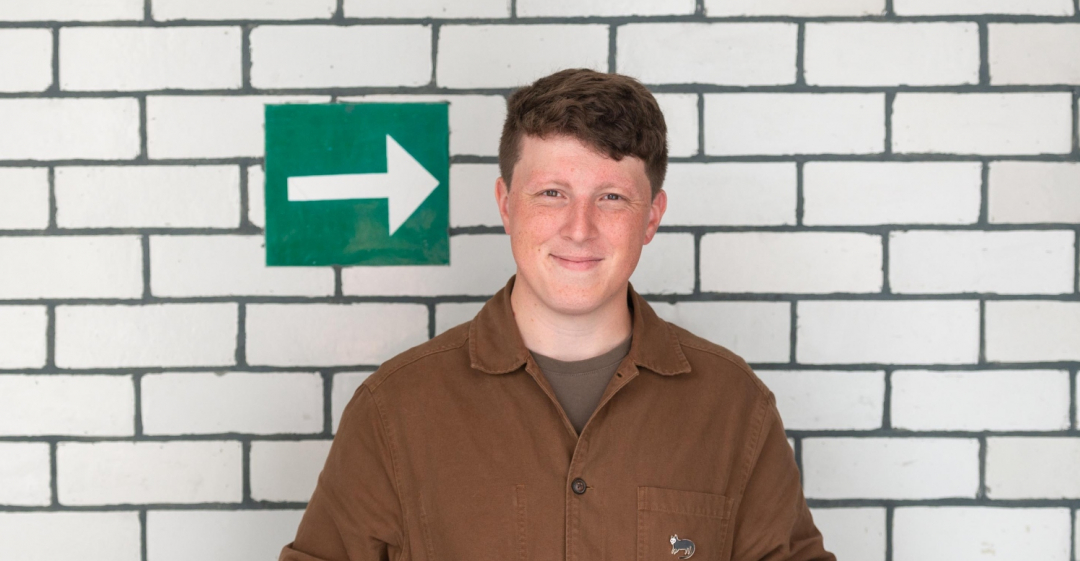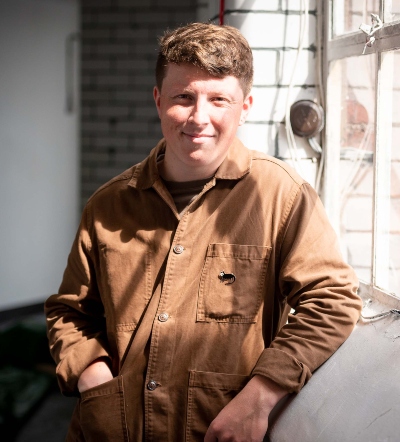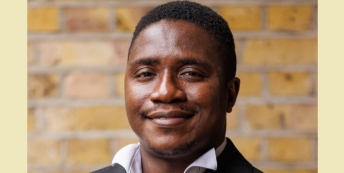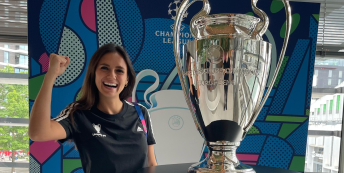“Choosing to do my own thing on the back of a redundancy was terrifying.”

What work were you doing previously?
I previously worked as a designer in publishing, creating guides for the events industry.
This included digital and print publications that ranged from 20–200 pages.
I relished the challenge and told myself that I'd like to stay within publishing for the rest of my career, even though I had objections with some of the subject matter and the ephemeral nature of the products we created.
What are you doing now?
I operate, and locally pioneer the concept of, an eco-friendly graphic design studio.
I work for myself, instead of for someone else.
Studio Walden is something I've dreamed about running for a long time; it's a real feeling of empowerment confidently being at the helm of my own business 18 months down the line.
How did you feel in your work before you decided to make the change?
I felt confident, secure and happy.
I worked within a great team which I cherished and was proud to be a part of.
Why did you change?
Changing wasn't exactly my choice.
I was made redundant three months into the pandemic lockdown, the day after my birthday. It was quite the shock.
I had already been made redundant two years earlier, which prepared me for the overwhelming feelings that arise in these situations. It wasn't easier, but at least it was more familiar.
That said, I'm now happier and most importantly, more free in working for myself, so I wouldn't change the decision even if I could.
How did you choose your new career?
Running my own design studio has been a dream since day one of university.
But choosing to do my own thing on the back of a redundancy was terrifying.
Fear aside, something in my internal compass told me I was doing the right thing, as I weighed up the alternatives (from a senior role over the border, to becoming a postman).
I realised I needed to strike this opportunity whilst it was hot.
Are you happy with the change?
From day one of Studio Walden I took every step to make sure I was happy with the change.
In June last year I had my first official day of business. Knowing I was the boss, I made the decision that I wouldn't work a single hour that day. Instead, I hiked up Helvellyn, a mountain in the Lake District – a work-free tradition in favour of happiness over profit that I plan to continue in the years to come.
What do you miss and what don't you miss?
I miss the team I worked with and the people whom I called my friends – that's the biggest difference.
What I don't miss are the things that I encountered in my day-to-day which didn't align with my morals. Being able to call the shots on what I do and don't work on makes a big difference to me.
How did you go about making the shift?
I didn't make the shift; the shift made me.
I hadn't made the decision to change, and I feel that the idea to start my own business was the only one suitable at the time.
With support from friends, family and colleagues, running Studio Walden has made me a different and better person.
How did you develop (or transfer) the skills you needed for your new role?
I already had the skills I needed to be a designer; of that much I am and always have been confident.
The skills I had to develop were the same ones everyone who runs their own business battles with: finances, tax and correspondence.
What didn't go well? What wrong turns did you take?
So far, mistakes have been few.
I've bought two printers, which both broke.
I've spent time working on things that didn't matter.
I've panicked about problems that never arose.
How did you handle your finances to make your shift possible?
Within five days of being made redundant, I had set up Studio Walden, promoted myself on social media to great effect, and begun working on client projects.
It was just a process of working as hard as I could to make enough money to cover the next month.
I was provided a small grant from my council to aid with working through the pandemic.
What was the most difficult thing about changing?
The most difficult thing about the change was applying restraint.
Like every other self-employed person I had roughly ten 'brilliant' business ideas each day. So learning how to filter out those to explore and invest in, and the ones to leave in the notebook, has been the most difficult thing.
What help did you get? 
Help has been a mixture of support and good will, which is perhaps the most important.
Friends helped paint the studio walls and move furniture, past colleagues shared my work, and a close friend provided invaluable mentorship.
What resources would you recommend to others?
Can good friends with opinions you trust be classed as a resource?
If so, I recommend you surround yourself with people who want to see you succeed.
What have you learnt in the process?
I've learnt that I'm more of a business person than I could have ever known.
Money has always been of little interest to me in itself – I care more about the freedom and resources it can provide rather than the value it holds. But I've learnt the value of valuing myself, of charging what I deserve rather than what's easiest to ask for.
What would you advise others to do in the same situation?
If you’re making the change due to the decision of another (whether a redundancy or not), don't let it belittle you.
Find the empowerment in making your next move and realise the freedom you have to make this decision. You might never have it again.
To find out more about Vincent's work, visit www.studiowalden.co.uk.
What lessons could you take from Vincent's story to use in your own career change? Let us know in the comments below.



